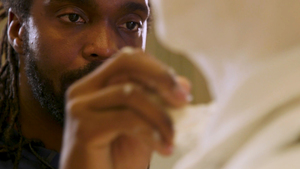At intermission during the Charlotte Symphony Orchestra pops concert featuring Tiempo Libre, I was somewhat embarrassed to discover that I’d heard the guest artists before. In fact, I’d written and published a review on one of the CDs for sale in the lobby at the group’s autograph table! But the group I’d heard on O’Reilly Street, recorded with renowned flautist Sir James Galway in 2008, was hardly the same – in personnel or in mood. Aside from the CSO, there were numerous blandishments at Belk Theater that the Galway disc lacked, including horns, vocals, and authentic timba spirit. The difference was night-and-day, or to be more precise, the difference between Claude Bolling’s cool Suite for Flute and Jazz Piano and Chano Pozo’s resplendent “Manteca.” With Jacomo Rafael Bairos at the podium, the Tiempo Libre ensemble – seven strong instead of the four who played with Galway – also had a more simpatico partner.
The preamble to the Cuban-born group’s appearance, appropriately enough, was Gershwin’s “Cuban Overture,” a piece the CSO has now rehearsed at least three times in the last six years. It was a pretty enough bauble just over two years ago when Christopher Warren-Green chose this work to launch his first-ever stint at the podium for a CSO pops concert. Much of the sparkle comes from an armada of percussion, and Bairos made sure it lost none of its luster, with clarinetist Eugene Kavadlo and oboist Hollis Ulaky instrumental in the success. Before bringing out his guests, Bairos explained that the first three rows of the orchestra had been removed to create a dance floor at the foot of the stage. But Tiempo’s first three selections, all salsa-fications of Bach arranged by musical director Jorge Gomez and University of Miami’s Raul Murciano, couldn’t coax any mambo or cha-cha out of the crowd. The Bach triptych did establish the timba credentials of bass guitarist Wilvi Rodriguez, saxophonist Luis Beltran Castillo (tearing up “Air on a G String” on soprano), trumpeter Raul Rodriguez, and Gomez at the electric piano.
It took the onset of lead vocalist Xavier Mili to achieve choreographic lift-off with the ensuing “Sones Medley.” A solo pioneer in a leopard-print dress was the first to set foot on the dance floor, but the flow suddenly became a flood when Mili began the familiar “Guantanamera” – at the briskest tempo I’ve ever heard for it. The floor remained fairly packed for Tiempo’s own “Fuga,” featuring some flaming, jazzy four-bar exchanges between Castillo and Raul Rodriguez. Then Mili ratcheted up the festivities a couple of notches with Murciano’s “Mambo Medley,” jumping down from the stage onto the dance floor to shake it with the dancers, then taking it further into the front rows of the orchestra, flirting with a wife and shaking hands with her husband. When that fun-filled segment was done, it was a good moment for Tiempo – and those partying dancers – to take a break.
Most of the percussionists who had made their exodus upon Tiempo Libre’s arrival returned to the stage after intermission for Mexican composer José Pablo Moncayo’s Huapango, a splashy little orchestral composition that also doles out tasty tidbits to flute, harp, trumpet, and trombone. Tiempo’s return signaled another mass migration to the dance floor, crowding that slim real estate more than before for bouts of timba, bolero, and cha-cha-cha, including an instrumental rendition of the beloved “Besame Mucho.” Only temporarily in the background, Mili resumed his irrepressible leadership in the finale, a rousing Tu Conga Bach by Gomez and Tiempo conga drummer Leandro González. Once again, Mili was off the stage and onto the dance floor. But this time, the singer led a conga line around the center section of the hall with the houselights up. After completing a full circle, the band doubled the tempo as Mili and his line interweaved with the tail end of the line just getting started. A searing trumpet solo by Rodriguez crowned this confection. It was music and mass jubilation that could have you screaming with delight, but there was no guarantee that anyone else would hear your screams over the crowd, the music, and the brass.











